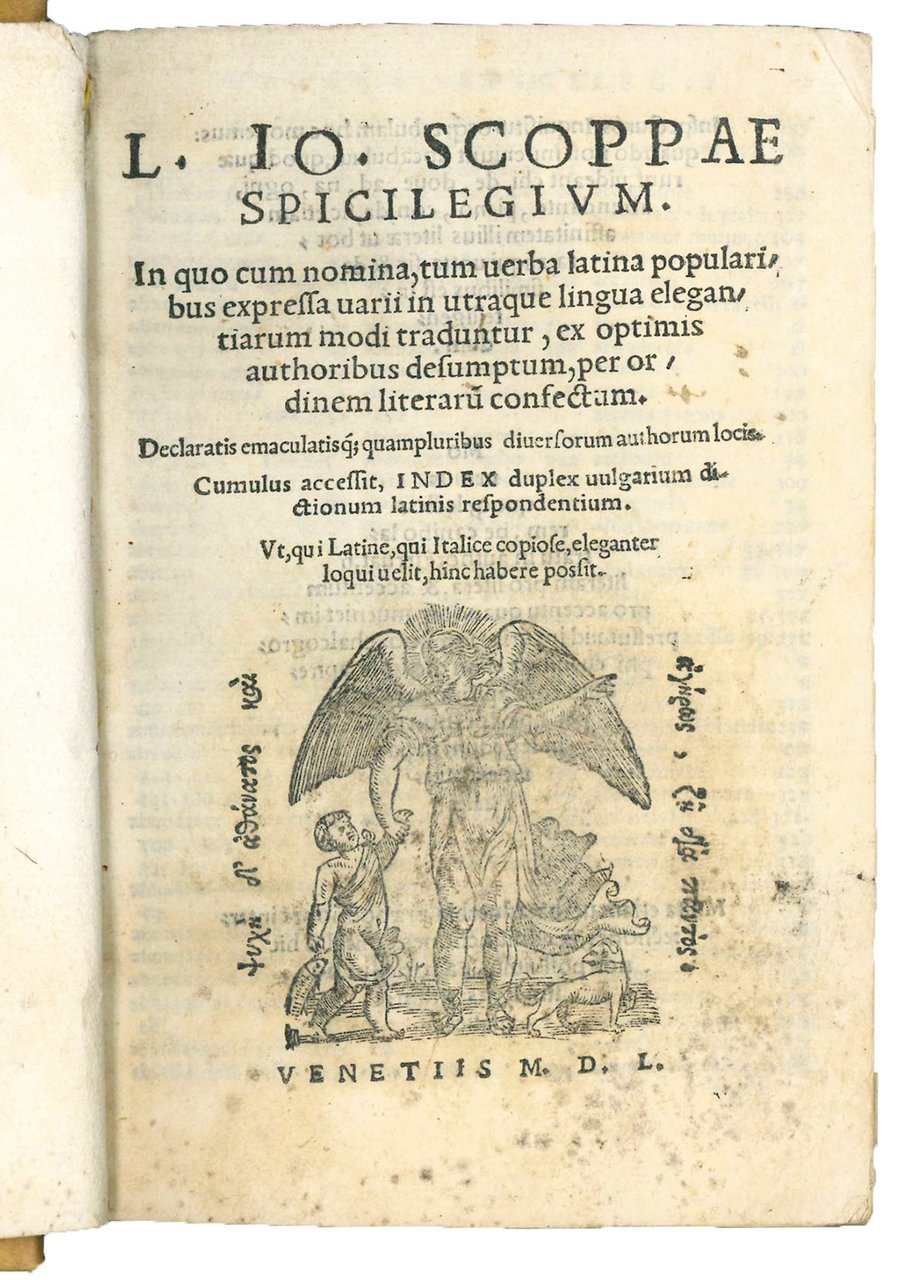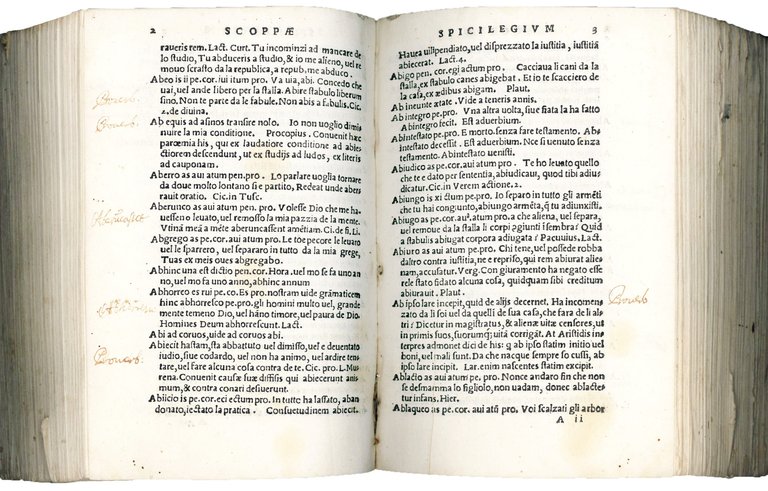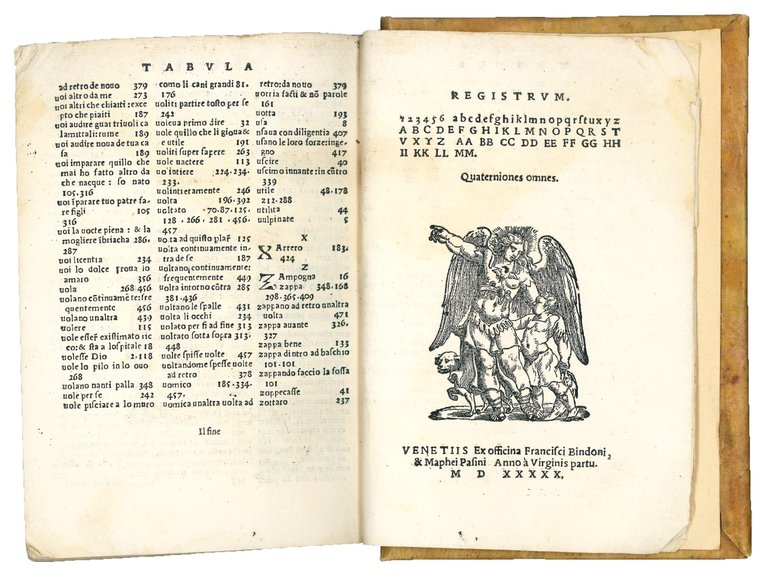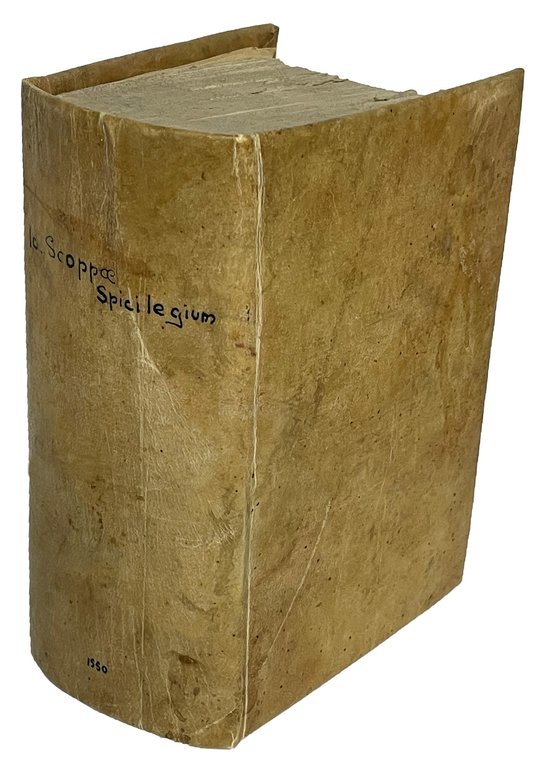L. Io. Scoppae Spicilegium. In quo nomina, tum verba latina popularibus expressa varii in utraque lingua elegantiarum modi traduntur, ex optimis authoribus desumptum, per ordinem literarum confectum […] Cumulus accessit, index duplex vulgarium dictionum latinis respondentium
L. Io. Scoppae Spicilegium. In quo nomina, tum verba latina popularibus expressa varii in utraque lingua elegantiarum modi traduntur, ex optimis authoribus desumptum, per ordinem literarum confectum […] Cumulus accessit, index duplex vulgarium dictionum latinis respondentium
Payment methods
- PayPal
- Credit card
- Bank transfer
- Pubblica amministrazione
- Carta del Docente
Details
- Year of publication
- 1550
- Place of printing
- Venezia
- Author
- SCOPPA, Lucio Giovanni (d. ca. 1543)
- Publishers
- [Francesco Bindoni & Maffeo Pasini]
- Keyword
- Quattro-Cinquecento
- State of preservation
- Good
- Languages
- Italian
- Binding
- Hardcover
- Condition
- Used
Description
ONE OF THE EARLIEST APPEARANCE OF THE WORD “CAMORRA”
Two parts in one volume, 8vo (152x95 mm). [96], 364, [4], 460, [100]. Collation: 1-68 a-z8 A-MM8. Printer's device on title page. Later stiff vellum, ink title on spine. Manuscript ownership entry on the front flyleaf. A few marginal annotations. Dampstain to the lower margin of the first leaves, some light scattered foxing and staining.
Expanded and revised edition (first edition 1512), appeared after the author's death, of this Latin-Italian dictionary by the Neapolitan grammarian and lexicographer Lucio Giovanni Scoppa. Written as teaching tool, the Spicilegio presents in alphabetical order a vast lexical and phraseological repertoire, in which single Latin words (in the first part) or idioms and whole phrases (in the second) are placed side by side with the corresponding words and expressions taken from the dialects of southern Italy, with a clear predominance of Neapolitan. It is attested here one of the earliest appearance, for example, of the word “camorra” (part one, p. 83), which originally denoted a blanket, or dress, and which seems to refer to the piece of cloth which the prisoners had their “pizzo” (literally lace, but meaning a gift paid in exchange for protection) poured in from the newcomers.
Edit 16, CNCE23481.




